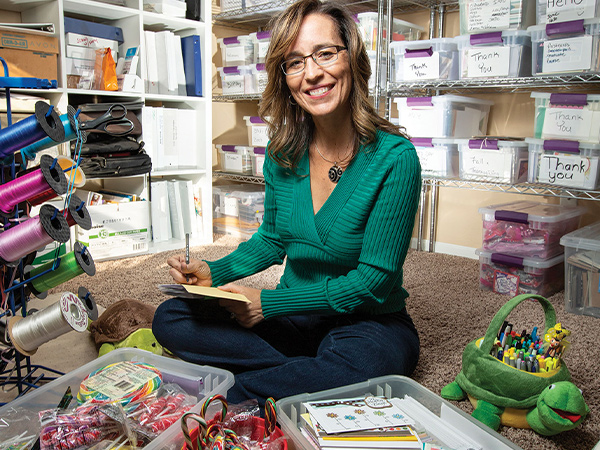AACR Grantee Studies a Rare Form of Sarcoma
Individual donations to the AACR add up to big support for promising new research on a rare type of cancer that strikes teenagers and young adults.
Contributions from individual donors to the American Association for Cancer Research (AACR) have added up to something big for a young researcher who is closing in on a new treatment for a rare form of cancer that took the life of a childhood friend.
“He had a rare pediatric sarcoma that no one had ever heard of before,” said Madelyn Espinosa-Cotton, PhD, a postdoctoral research associate at Memorial Sloan Kettering Cancer Center. “He had doctors who really cared about him. They threw everything they had at it. But when it recurred, they had nothing left to try. He died right before we graduated high school.”
She went on to college at the University of Northern Iowa, but the loss of her friend stayed with her as she thought about her future and considered becoming a medical doctor specializing in oncology.
“Then I realized that you can be the best oncologist in the world, but if you don’t have treatment options, then you can’t help people,” she said.
She switched gears and studied for a doctorate in free radical and radiation biology at the University of Iowa, investigating the effects of interleukin-1 on cetuximab efficacy in head and neck cancer. Dr. Espinosa-Cotton then took up her current post as a researcher at Memorial Sloan Kettering Cancer Center in New York.
She is focusing on desmoplastic small round cell tumor (DSRCT). This is a type of soft tissue sarcoma that grows in connective tissues (fat, muscles, tendons, lymph and blood vessels, and nerves) in the abdomen and pelvic area of the body.
DSRCT occurs most often in young white men between the ages of 10 and 30. It is very rare, with perhaps only 200 cases reported since it was first described in 1989, according to the National Cancer Institute (NCI). The cancer tends to metastasize and often goes undetected until widespread metastasis has occurred. The five-year survival rate is about 15%, according to the NCI.
In her postdoctoral studies, Dr. Espinosa-Cotton identified targets expressed by DSRCT. Now she is developing T-cell bispecific antibodies and radioimmunotherapeutic antibodies to attack those targets.
“The exciting thing about these treatments is that they are potentially curative,” she said. “We’re not just looking at giving people a little bit of extra time, but actually eradicating disseminated disease.”
Her research was slowed by the pandemic, and she was faced with the possibility of running out of funding before obtaining the results she needed. She applied for an AACR Fellowship to Further Diversity, Equity and Inclusion in Cancer Research. The grant was funded by individual, small-dollar donations to the AACR.
“This fellowship will allow me to continue my research for an additional two years, during which I hope to bring one of my antibodies to human trials,” Dr. Espinosa-Cotton said.
She is preparing several manuscripts on the results of her studies, and the extra time afforded her by the AACR fellowship will give her the opportunity to publish them in scientific journals.
“This was a lifesaver for me and my career,” she said. “And I think it’s going to be a great bridge to getting a faculty position and hopefully continuing this research.”
“I just want to thank the individual donors so much,” she added. “When we come together and when a lot of people feel that this is important, you can make a real tangible difference in what we can do for our patients.”

